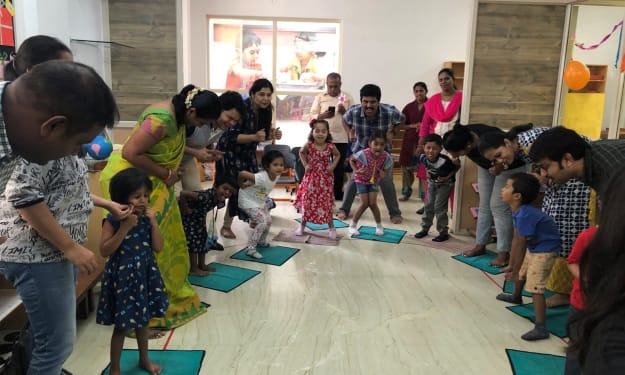Implementing Montessori Principles at Home
Implementing Montessori Principles at Home

Implementing Montessori Principles at Home
Montessori education is a unique approach to learning that focuses on the individual needs and interests of each child. This method of education was developed by Dr. Maria Montessori, an Italian physician and educator, over a century ago. Today, Montessori schools in Bangalore, like Cherubs Montessori, are becoming increasingly popular as parents and educators recognize the benefits of this approach. While Montessori schools provide a structured environment for learning, it is also possible to implement Montessori principles at home.
The Montessori approach is based on the principle that children have an innate desire to learn and that they should be given the freedom to explore and discover their environment. The Montessori classroom is designed to be a child-centered environment, where students are given the opportunity to work independently and at their own pace. The teacher acts as a guide, helping students to develop their own interests and passions. The same principles can be applied at home to create a Montessori-inspired home environment that supports a child's natural inclination to learn.
One of the key principles of Montessori education is to provide children with a sense of independence and autonomy. At home, this can be achieved by giving children the freedom to make their own choices and decisions. For example, allowing children to choose their own clothes for the day or what to have for breakfast can help them develop a sense of self-expression and self-confidence. It can also be helpful to give children age-appropriate responsibilities, such as setting the table or helping with laundry, which can help them develop a sense of responsibility and purpose.
Another important principle of Montessori education is to provide children with hands-on learning experiences. At home, this can be achieved by creating a space for children to explore and discover. This can be done by setting up a designated play area or providing children with a variety of materials, such as blocks or art supplies, that they can use to explore and experiment with. Providing children with real-life objects, such as kitchen utensils or tools, for them to use in their play can help them to develop a deeper understanding of the world around them.
Montessori education also emphasizes the importance of social interactions and cooperation. At home, this can be achieved by encouraging children to play and interact with others. This can be done by setting up playdates with other children or by having family members play games and do projects together. It can also be helpful to provide opportunities for children to work together on shared projects, such as building a fort or creating a family garden.
In Montessori classrooms, children are encouraged to take on responsibilities, such as caring for the classroom and the environment. This helps to build a sense of responsibility and ownership. The same can be applied at home by giving children age-appropriate chores and encouraging them to take care of the environment by recycling and conserving resources.
In conclusion, Montessori education is a unique approach to learning that focuses on the individual needs and interests of each child. It promotes independence, autonomy, hands-on learning, social interactions, and cooperation. While Montessori schools, like Cherubs Montessori, in Bangalore provide a structured environment for learning, it is also possible to implement Montessori principles at home. By creating a Montessori-inspired home environment, parents can support their child's natural inclination to learn, and help them develop a love of learning that will serve them well throughout their lives.
About the Creator
Enjoyed the story? Support the Creator.
Subscribe for free to receive all their stories in your feed. You could also pledge your support or give them a one-off tip, letting them know you appreciate their work.





Comments
There are no comments for this story
Be the first to respond and start the conversation.